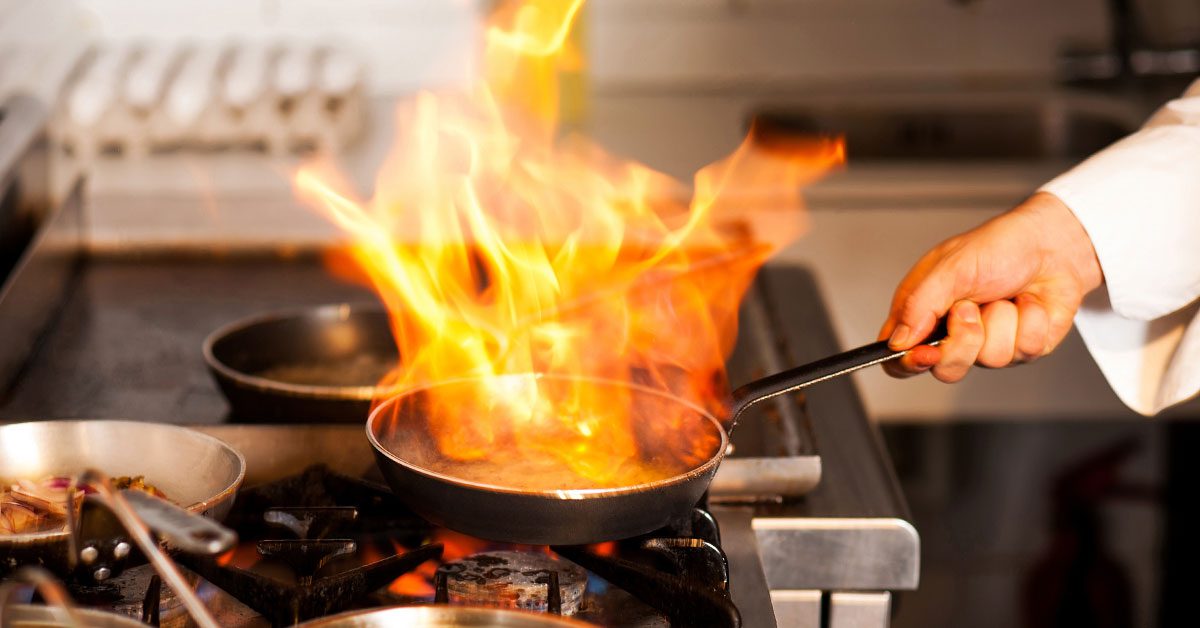Fire safety is a critical concern in the restaurant industry, where the risk of fire is higher due to the nature of cooking equipment, flammable materials, and high temperatures. A fire in a commercial kitchen can not only cause significant damage to property but also put lives at risk and lead to devastating business losses. Having a Fire Alarm Certificate is one step in ensuring that your establishment meets safety standards. Understanding the top fire hazards and implementing preventive measures is essential to ensure the safety of both staff and customers.
Common Fire Hazards in Restaurants
1. Grease Buildup
One of the most common fire hazards in commercial kitchens is the buildup of grease. Grease accumulates on kitchen equipment, exhaust hoods, ducts, and vents over time. This buildup is highly flammable and can easily ignite if exposed to an open flame or high heat. A grease fire can spread rapidly, engulfing the entire kitchen in minutes.
2. Faulty Electrical Equipment
Electrical equipment is another significant fire hazard in restaurants. Commercial kitchens are filled with appliances such as ovens, fryers, grills, and refrigerators, all of which rely on electrical power. Faulty wiring, overloaded circuits, or malfunctioning appliances can lead to electrical fires. Moreover, when water or other liquids come into contact with electrical outlets or equipment, it can result in short circuits that may spark a fire.
3. Open Flames
Open flames are a staple in many restaurant kitchens, whether from gas stoves, grills, or burners. While these flames are necessary for cooking, they also pose a fire risk, especially when not carefully monitored. Open flames can easily ignite nearby materials, such as paper towels, napkins, or wooden utensils. Additionally, improper use of gas appliances can lead to gas leaks, which are highly flammable and can cause explosions.
4. Flammable Materials
Restaurants use various flammable materials, including cooking oils, cleaning chemicals, and even decorations. Cooking oils, in particular, are a significant fire hazard because they can ignite at high temperatures, leading to a grease fire. Cleaning chemicals, if not stored and used correctly, can also contribute to fire risks, especially if they come into contact with heat sources.
5. Poor Ventilation
Adequate ventilation is crucial in commercial kitchens to prevent the buildup of heat, smoke, and flammable vapors. Poor ventilation can trap these hazardous elements, increasing the likelihood of a fire. Moreover, if ventilation systems are not regularly cleaned and maintained, grease and other flammable residues can accumulate, further elevating fire risks.
6. Human Error
Human error is another common cause of fires in restaurants. Busy kitchens can be chaotic, and mistakes such as leaving cooking equipment unattended, improperly disposing of flammable waste, or mishandling hot oil can lead to accidental fires. Inexperienced or inadequately trained staff may also inadvertently create fire hazards by not following proper safety protocols.
Preventing Fires in Commercial Kitchens
1. Regular Cleaning and Maintenance
To prevent fires in commercial kitchens, it is essential to prioritize regular cleaning and maintenance. Grease buildup should be removed frequently from kitchen surfaces, exhaust hoods, ducts, and vents. Implementing a cleaning schedule ensures that grease does not accumulate to dangerous levels. Additionally, all kitchen equipment should be inspected regularly for signs of wear and tear, and any faulty or malfunctioning appliances should be repaired or replaced immediately.
2. Proper Use of Electrical Equipment
Ensuring the proper use of electrical equipment is vital for fire prevention. Staff should be trained to operate appliances safely, and all electrical wiring and circuits should be regularly inspected by a qualified electrician. It is crucial to avoid overloading circuits and to use appliances according to the manufacturer’s instructions. In the event of a power surge or electrical fault, the power supply should be shut off immediately to prevent sparks or overheating.
3. Safe Handling of Open Flames
Managing open flames safely is key to preventing fires in a restaurant setting. Gas stoves, grills, and burners should be regularly inspected for leaks and proper operation. Staff should be trained to handle open flames with caution, ensuring that flammable materials are kept away from heat sources. Additionally, gas appliances should be turned off when not in use, and any gas leaks should be reported and addressed promptly.
4. Storing and Using Flammable Materials Safely
Flammable materials, including cooking oils and cleaning chemicals, should be stored and handled with care. Cooking oils should be kept in tightly sealed containers away from heat sources. Cleaning chemicals should be stored according to the manufacturer’s guidelines, and staff should be trained on how to use them safely. In the event of a spill, flammable materials should be cleaned up immediately to prevent potential ignition.
5. Ensuring Proper Ventilation
Proper ventilation is essential for maintaining a safe kitchen environment. Exhaust hoods, vents, and ducts should be regularly cleaned to remove grease and other flammable residues. Ventilation systems should be inspected to ensure they are functioning correctly and effectively removing heat, smoke, and vapors from the kitchen. Adequate ventilation helps to reduce the buildup of flammable elements, lowering the risk of a fire.
6. Staff Training and Fire Safety Protocols
Training staff in fire safety protocols is one of the most effective ways to prevent fires in commercial kitchens. All employees should be familiar with the location and use of fire extinguishers, fire blankets, and emergency exits. Regular fire drills should be conducted to ensure that staff know how to respond in the event of a fire. Additionally, training should cover the safe operation of kitchen equipment, proper disposal of waste, and how to handle flammable materials.
Conclusion
Fire safety in restaurants is a critical responsibility that requires ongoing attention and diligence. By understanding the common fire hazards in commercial kitchens and implementing effective preventive measures, restaurant owners and staff can significantly reduce the risk of fire. Regular cleaning, proper equipment maintenance, safe handling of flammable materials, and thorough staff training are all essential components of a comprehensive fire prevention strategy. Additionally, services like those offered by London Property Inspections can help ensure that your establishment meets all safety and regulatory standards. Ultimately, investing in fire safety not only protects the business and its assets but also ensures the safety and well-being of everyone in the restaurant, If you want to stay updated with posts like this, please follow us on VBusiness.




